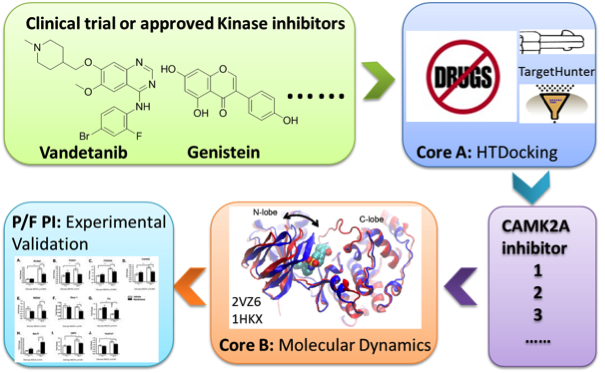 P/F Project 1: Identify key proteins in substance addiction pathways as drug targets for potential treatment. (PI: Mary Torregrossa, PhD, Assistant Professor, Translational Neuroscience Program, Department of Psychiatry, Pitt)
P/F Project 1: Identify key proteins in substance addiction pathways as drug targets for potential treatment. (PI: Mary Torregrossa, PhD, Assistant Professor, Translational Neuroscience Program, Department of Psychiatry, Pitt)
Specific Aims. Dr. Torregrossa is a new investigator. She recently received a K01 award from NIDA (K01DA031745, 2011-2016) “PHOSPHOPROTEOMICS OF EXTINCTION AND RECONSOLIDATION OF DRUG MEMORIES”. This is a five year career grant with the objective to use phospho-proteomics to identify novel signaling cascades that are differentially activated/inhibited by drug-cue memory reconsolidation and extinction processes. The Torregrossa lab is examining how learning and memory systems are affected by long-term exposure to drugs of abuse, and how environmental and genetic factors interact to produce vulnerability to addiction. The project will benefit from the support of all three Cores. We will focus in particular on compounds affecting stress hormones, as the Torregrossa lab is interested in understanding how high levels of stress and stress hormones during critical prefrontal cortical developmental increase long-term risk for drug addiction and anxiety disorders. The targets identified in silico will be tested/validated by the PI Torregrossa with the help of secondary confirmation methods, including multiple reactions monitoring (MRM) and Western blotting. In addition, the P/F PI will further confirm their potency in a behavioral animal model using known pharmacological agents or RNAi screens via viral-mediated gene transfer established in her laboratory. In the present P/F project, tw o specific aims are proposed:
o specific aims are proposed:
Aim 1: To identify novel signaling cascades that are differentially activated/inhibited by drug-cue memory reconsolidation and extinction processes.
Aim 2: To manipulate these targets with pharmacological approaches and further validate in a behavioral animal model using known pharmacological agents.



